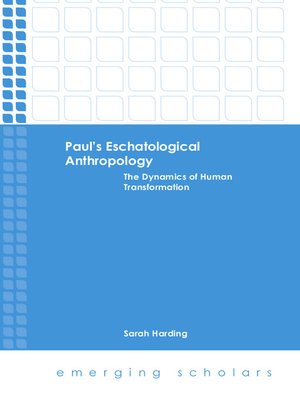Paul's Eschatological Anthropology
ebook ∣ The Dynamics of Human Transformation · Emerging Scholars
By Sarah Harding

Sign up to save your library
With an OverDrive account, you can save your favorite libraries for at-a-glance information about availability. Find out more about OverDrive accounts.
Find this title in Libby, the library reading app by OverDrive.



Search for a digital library with this title
Title found at these libraries:
| Library Name | Distance |
|---|---|
| Loading... |
In this study, Sarah Harding examines Paul's anthropology from the perspective of eschatology, concluding that the apostle's view of humans is a function of his belief that the cosmos evolves through distinct aeons in progress toward its telos. Although scholars have frequently assumed that Paul's anthropological utterances are arbitrary, inconsistent, or dependent upon parallel views extant in the first-century world, Harding shows that these assumptions only arise when Paul's anthropology is considered apart from its eschatological context. That context includes the temporal distinction of the old aeon, the new aeon, and the significant overlap of aeons in which those "in Christ" dwell, as well as a spatial dimension that comprises the cosmos and the powers that dominate it (especially sin and the Holy Spirit). These eschatological dimensions determine the value Paul attaches to any particular anthropological "aspect." Harding examines the cosmological power dominant in each aeon and the structures through which, in Paul's view, these influence human beings, examining texts in which Paul discusses nous, kardia, and soma in each aeon.







